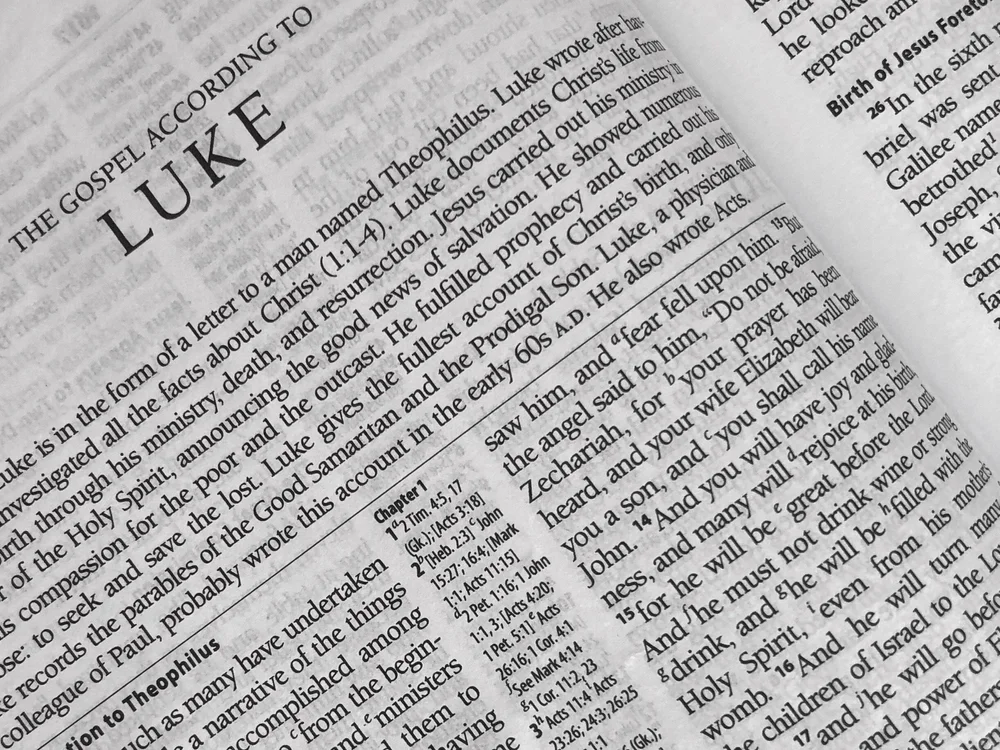
Image by Shutterstock.com
Disclosure: This post may contain affiliate links, meaning Beautiful Christian Life LLC may get a commission if you decide to make a purchase through its links, at no cost to you.
Do you think you’re seeing a fierce competition during an SEC college football game, a WWE wrestling event, or even the current presidential election?
These are all just sissy stuff when compared to Jesus’ fight against Satan in the wilderness (Matt. 4:1–11). Here are six things Jesus teaches us about the devil in this epic encounter:
1. The devil is real.
The Bible tells us that "Jesus was led up by the Spirit into the wilderness to be tempted by the devil" (Matt: 4:1) People should not doubt the existence of Satan. He is indeed real and tried to destroy Jesus in the wilderness to thwart his redemptive work.
2. The devil tries to make us doubt God’s provision.
Jesus had been fasting for forty days and forty nights, and Satan seized upon this opportunity to take advantage of Jesus in his weakened physical state. The devil told him:
“If you are the Son of God, command these stones to become loaves of bread.” (Matt: 4:3)
Notice the first word the devil used: “if.” Satan knew Jesus was the Son of God. The devil hoped his taunts, combined with Jesus’ physical hunger, would cause Jesus to buckle, but that wasn’t going to happen. Jesus had confidence that his Father would provide for all his needs. He came right back at Satan with a Scripture text:
“It is written, 'Man shall not live by bread alone, but by every word that comes from the mouth of God.'" (4:4; see also Deut. 8:3)
Christians also face circumstances in life in which they are weakened and more vulnerable to Satan’s schemes. We must trust God’s word and not allow our doubts, fears, and fleshly desires to lead us into sin. We also need to attend church regularly and be in regular fellowship with the saints so that we may stand strong together against the devil.
3. The devil knows Scripture.
Next, the devil cites Psalm 91:11–12 to entice Jesus to jump off the roof of the temple to test God’s love for his Son (Matt. 4:5–6). Jesus answers Satan right back with Scripture:
“Again it is written, ‘You shall not put the Lord your God to the test.’” (Matt. 4:7; see also Deut. 6:16)
If you think Scripture can’t be twisted for evil purposes, you need look no further than this passage to realize this is one of the major ways Satan attacks Christians. Just as the devil twists God’s command to Adam and Eve in the garden of Eden (Gen. 3:1–5), he repeats the same drill with Jesus in the wilderness. Christians must be equipped with God’s Word like Jesus was so they can stand strong against the devil. Yet, knowing Scripture is not enough; Christians also need to know how to interpret Bible verses in their proper context to employ them effectively against all the devil’s schemes.
4. The devil has great power.
After the devil’s first two failed attempts to get Jesus to obey him rather than God, Satan tempts Jesus to choose worldly power over obedience to his Father.
Again, the devil took him to a very high mountain and showed him all the kingdoms of the world and their glory. And he said to him, “All these I will give you, if you will fall down and worship me.” (Matt. 4:8–9)
Satan shows his great power by first taking Jesus to the pinnacle of the temple and then to a mountaintop. If Satan can do such things, we should never underestimate his power here on earth. Furthermore, we should not be surprised by the evil we see all around us. Still, the devil can only do what God allows him to do (Job 1:12).
5. Jesus has authority over the devil.
We can be confident in the midst of any trial that God is in control and has ultimate power over Satan in all things.
Then Jesus said to him, “Be gone, Satan! For it is written, 'You shall worship the Lord your God and him only shall you serve.'" (Matt. 4:10; see also Deut. 6:13)
Jesus had to pass the test that Adam failed in the garden of Eden (Gen 2:16–17; 3:1–6). He refused to believe the devil’s lies and instead obeyed his Father in all things. Jesus was tempted but did not sin (Heb. 4:15). Satan has power, but Jesus has ultimate power over all creation. When Jesus said, “Be gone, Satan!” the devil had to obey him (Matt. 4:11).
6. The devil is doomed.
Although it may have appeared that the devil triumphed over God at the cross, it was actually the other way around. In that greatest act of evil ever perpetrated against God and man, Jesus conquered sin, death, and the devil with the greatest victory of all time, winning salvation for all who trust in him.
Satan hates God, and he hates you and me. If the devil tried repeatedly to destroy God’s Son, we can be certain he seeks our demise as well. He tries to frighten and tempt Christians and make them think the world can satisfy their needs, when only God can.
If you are in Christ, the devil can never rob you of your right standing before God. He can cause believers to experience great struggles in this life, but only as God allows in his perfect will. Just as the angels rushed in to care for Jesus after he defeated the devil in the wilderness (Matt. 4:11), God cares for his children in ways we cannot always see, but are still real and present all around us (Prov. 5:21; 1 Pet. 5:7).
The devil’s time is short, and his doom is sure. In this time before Jesus’ return, God is patient, "not wishing that any should perish, but that all should reach repentance" (1 Pet. 3:9). Take comfort, because Jesus Christ—your captain, your champion, your advocate, your hero—shall never waver in his love for you. He “will sustain you to the end, guiltless in the day of our Lord Jesus Christ” (1 Cor. 1:8).
This article was originally published at corechristianity.com and has been updated since it was first featured at Beautiful Christian Life on September 10, 2018.
Related Articles:
-
12 Reasons Why Jesus Meant It When He Said, “It Is Finished"
-
3 Things about Jesus’ Reign You Need to Know—Whether You’re a Christian or Not
Recommended:
Overcoming Sin and Temptation by John Owen; edited by Kelly M. Kapic and Justin Taylor
from Blog - Beautiful Christian Life https://ift.tt/0S7H43b
via IFTTT






